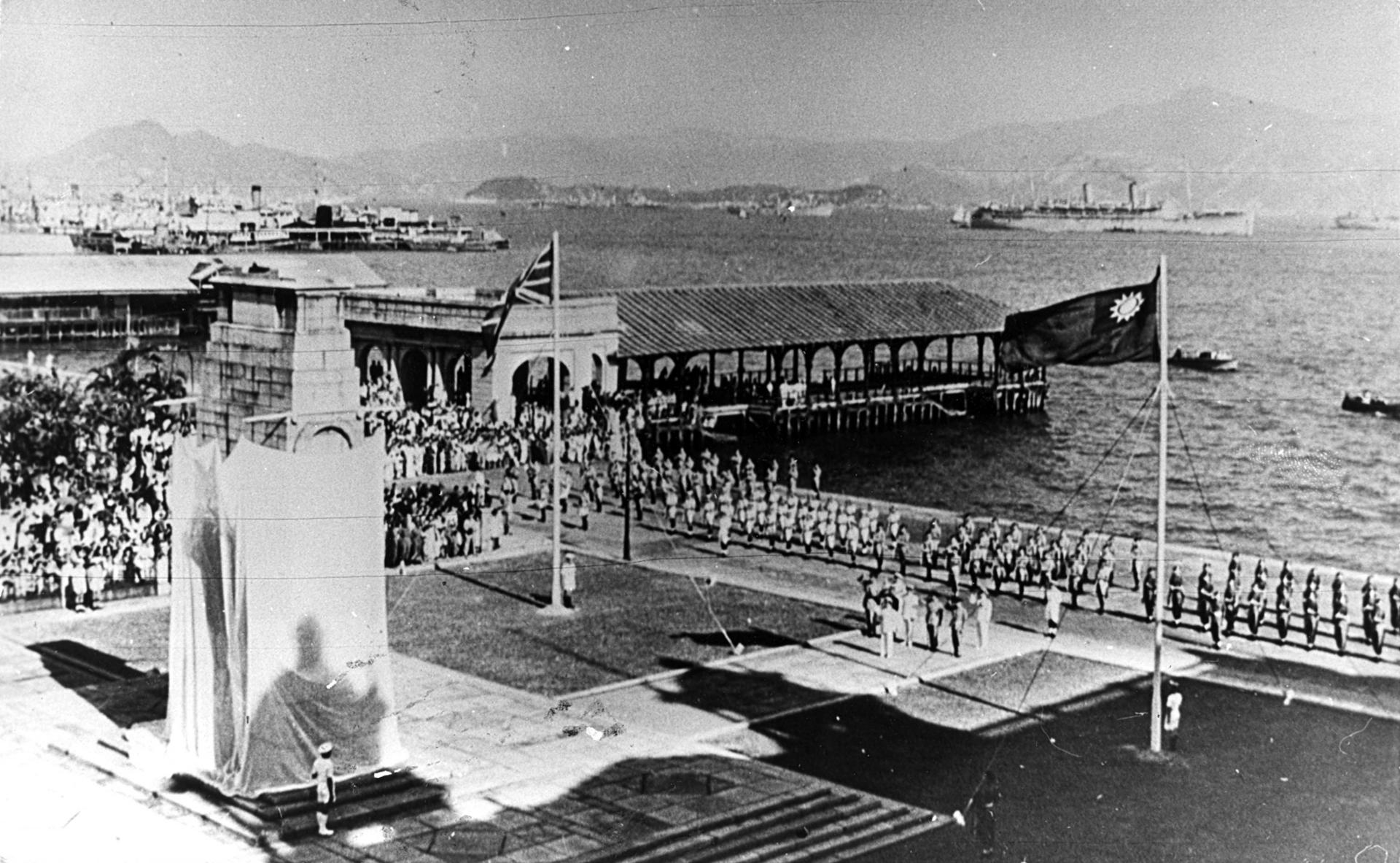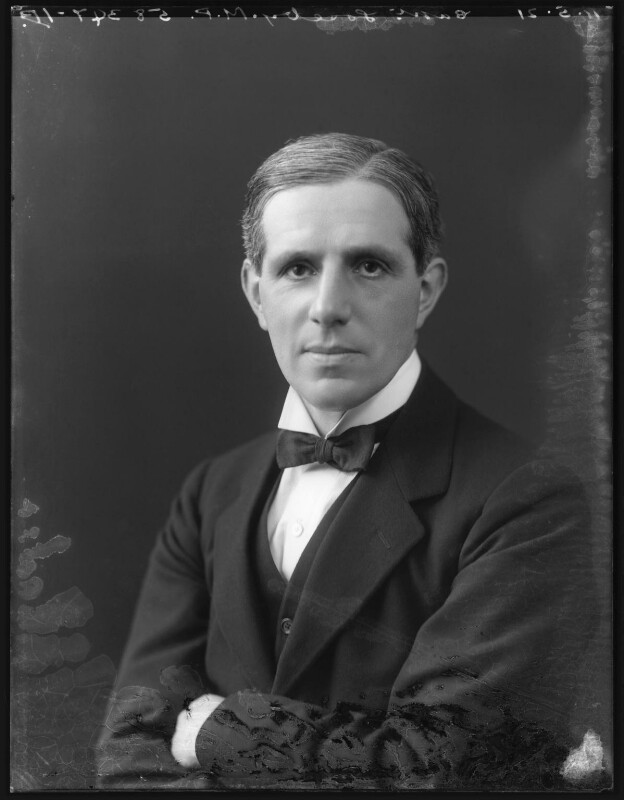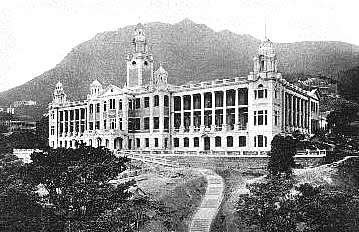|
Young Plan (Hong Kong)
The Young Plan was a constitutional reform proposal carried out in 1946 attempting to introduce representative democracy in Colonial Hong Kong. Named after the then Governor, Mark Young, it was the first major reform proposal to give Hong Kong inhabitants a greater share of managing their own affairs by widening the base of Hong Kong's political system through the creation of a new Municipal Council. The proposed Council was to consist of an elected majority based on a fairly wide franchise, with powers and autonomy over all urban services, education, social welfare, town planning and other functions. It even allowed for indirect election of two Unofficial Members of the Legislative Council (LegCo) by the new Council. Unofficial Members of the Legislative Council were opposed to the transfer of power to the new body and Young's successor, Governor Alexander Grantham who was opposed to the Young Plan, did not press this issue. Discussion dragged on but the continued oppositio ... [...More Info...] [...Related Items...] OR: [Wikipedia] [Google] [Baidu] |
Representative Democracy
Representative democracy, also known as indirect democracy, is a type of democracy where elected people represent a group of people, in contrast to direct democracy. Nearly all modern Western-style democracies function as some type of representative democracy: for example, the United Kingdom (a unitary parliamentary constitutional monarchy), India (a federal parliamentary republic), France (a unitary semi-presidential republic), and the United States (a federal presidential republic). Representative democracy can function as an element of both the parliamentary and the presidential systems of government. It typically manifests in a lower chamber such as the House of Commons of the United Kingdom, and the Lok Sabha of India, but may be curtailed by constitutional constraints such as an upper chamber and judicial review of legislation. Some political theorists (including Robert Dahl, Gregory Houston, and Ian Liebenberg) have described representative democracy as polyarchy. Rep ... [...More Info...] [...Related Items...] OR: [Wikipedia] [Google] [Baidu] |
Battle Of Hong Kong
The Battle of Hong Kong (8–25 December 1941), also known as the Defence of Hong Kong and the Fall of Hong Kong, was one of the first battles of the Pacific War in World War II. On the same morning as the attack on Pearl Harbor, forces of the Empire of Japan attacked the British Crown colony of Hong Kong, without declaring war against the British Empire. The Hong Kong garrison consisted of British, Indian and Canadian units, also the Auxiliary Defence Units and Hong Kong Volunteer Defence Corps (HKVDC). Within a week the defenders abandoned the 2 of the 3 territories of Hong Kong ( Kowloon and New Territories) on the mainland, and less than two weeks later, with their last territory Hong Kong Island untenable, the colony surrendered. Background Britain first thought of Japan as a threat with the ending of the Anglo-Japanese Alliance in 1921, a threat that increased throughout the 1930s with the escalation of the Second Sino-Japanese War. On 21 October 1938 the Japanese occup ... [...More Info...] [...Related Items...] OR: [Wikipedia] [Google] [Baidu] |
Chinese Manufacturers' Association Of Hong Kong
The Chinese Manufacturers' Association of Hong Kong (CMA; ) is a not-for-profit chamber of commerce established on 1 September 1934 and one of the most representative industrial associations in Hong Kong. With over 3,000 member companies from various sectors of industry and trade. It was most well-known of its annual Hong Kong Brands & Products Expo. Since 1985, the CMA has representative in the Legislative Council of Hong Kong through the Industrial (Second) functional constituency A functional constituency is an electoral device (a non-geographical constituency) used within the political systems of two Special Administrative Regions of the People's Republic of China: * Functional constituency (Hong Kong) * Functional cons .... Objectives The CMA's primary objectives are: * to promote Hong Kong's trade and industrial development; * to represent industry in the formulation and implementation of Government policies; * to participate in community development work; and * to foste ... [...More Info...] [...Related Items...] OR: [Wikipedia] [Google] [Baidu] |
Percy Chen
Percy Chen (; 1901–20 February 1989) was a Chinese Trinidadian lawyer of Hakka descent, as well as a journalist, businessman and political activist. Family and early life Chen was born in Belmont, Port-of-Spain, Trinidad, British West Indies, in 1901. He was the eldest son of Eugene Chen, the leader of the left wing faction in the Kuomintang (Chinese Nationalist Party) and the Foreign Minister of the Republic of China, and Agatha Alphosin Ganteaume (1878–1926), known as Aisy, daughter of a French Creole father who owned one of the largest estates in Trinidad. Chen was educated at University College School in London. He did his apprenticeship at the Middle Temple and called to the English Bar at the age of 21 in 1922 and practiced law for several years in Trinidad. In the fall of 1926 Chen joined his father at the Foreign Office of the Nationalist Government and felt he "had come home" although he didn't speak any Chinese. He followed the National Revolutionary Army to Hanko ... [...More Info...] [...Related Items...] OR: [Wikipedia] [Google] [Baidu] |
Ma Man-fai
Ma Man-fai (; 1905–1994) was a Hong Kong politician and social activist active in the 1950s and 1960s. He was the founder and the chairman of the United Nations Association of Hong Kong (UNAHK) from its establishment in 1953 to 1983. Biography He was born in Hong Kong in 1905 into a merchant family of Ma Ying-piu, an Australian Chinese who founded the Sincere Department Store in Hong Kong in 1900, and his wife Fok Hing-tong. Ma Ying-piu also a supporter of the anti-Qing revolution and funded Sun Yat-sen's revolutionary activities. Ma attributed his father and his time in London as a buyer of his father's company as the inspirations of his liberal values. His mother was a social reformer, founder of the Chinese YWCA of Hong Kong and an anti-mui tsai movement leader. Ma Man-fai was educated at the Lingnan College in Canton and lived in Mainland China during the Japanese occupation of Hong Kong. In 1932, he was a director of the Tung Wah Hospital. He also held various public ... [...More Info...] [...Related Items...] OR: [Wikipedia] [Google] [Baidu] |
Hong Kong Chinese Reform Association
The Hong Kong Chinese Reform Association () is a pro-Beijing political organisation established in 1949 in Hong Kong. It was one of the three pillars of the pro-Communist leftist camp throughout most of the time in Hong Kong under colonial rule (the others two being the Hong Kong Federation of Trade Unions and Chinese General Chamber of Commerce). History Founding It was first founded in May 1949 by a group of Chinese professionals and intellectuals in response to the then Governor Mark Aitchison Young's plan of constitutional reform. The founding members included barristers Mok Ying-kwai and Percy Chen, Chan Kwan-po, senior lecturer in the Department of Chinese of the University of Hong Kong, Wong San-yin, formerly a leactuer in pharmacology in the University of Hong Kong and doctor Wu Tat-biu. Wong San-yin was elected the association's founding chairman. Wong San-yin was appointed to the Chinese People's Political Consultative Conference (CPPCC) after the People's Republic ... [...More Info...] [...Related Items...] OR: [Wikipedia] [Google] [Baidu] |
Member Of Parliament
A member of parliament (MP) is the representative in parliament of the people who live in their electoral district. In many countries with bicameral parliaments, this term refers only to members of the lower house since upper house members often have a different title. The terms congressman/congresswoman or deputy are equivalent terms used in other jurisdictions. The term parliamentarian is also sometimes used for members of parliament, but this may also be used to refer to unelected government officials with specific roles in a parliament and other expert advisers on parliamentary procedure such as the Senate Parliamentarian in the United States. The term is also used to the characteristic of performing the duties of a member of a legislature, for example: "The two party leaders often disagreed on issues, but both were excellent parliamentarians and cooperated to get many good things done." Members of parliament typically form parliamentary groups, sometimes called caucuse ... [...More Info...] [...Related Items...] OR: [Wikipedia] [Google] [Baidu] |
Charles Edgar Loseby
Charles Edgar Loseby (1881 – 1970) was a captain, lawyer and British politician being Member of Parliament for Bradford East. Before World War I, he was a teacher at St Cyprian's School, Eastbourne and in 1912 he taught at Winchester House School in Deal, Kent. He joined the army in September 1914 and went to serve in France. He was gassed at Ypres in May 1915. At the 1918 general election, he was elected as Coalition National Democratic member for Bradford East, and served in the House of Commons until the 1922 general election. After the Coalition government ended he remained an advocate of close co-operation between the Liberal and Conservative parties; He was a supporter of Winston Churchill and like Churchill contested the 1924 General election as a Constitutionalist at Nottingham West. He was unsuccessful at the election and before the 1929 General election, he had joined the Conservatives, standing as a candidate for them in 1929. He lived in Hong Kong and becam ... [...More Info...] [...Related Items...] OR: [Wikipedia] [Google] [Baidu] |
Reform Club Of Hong Kong
The Reform Club of Hong Kong was one of the oldest political organisations in Hong Kong, existing from 1949 until the mid-1990s. Established by expatriates who were concerned about the Young Plan proposed by Governor Mark Aitchison Young in 1949, the Reform Club was the first semi-political party to contest in the Urban Council elections, with its longtime chairman Brook Bernacchi serving on the Council for about forty years. It demanded expansion of the power of the Urban Council and elected representatives in the Legislative Council for years. Together with the Hong Kong Civic Association, they were the closest to opposition parties in Hong Kong active in the municipal electoral politics during the post-war colonial period. With the expansion of the franchise in the 1980s, the Reform Club gradually declined and was replaced by the more energetic political groups. The Club ceased to function after its chairman Bernacchi retired from the Urban Council in 1995. History The R ... [...More Info...] [...Related Items...] OR: [Wikipedia] [Google] [Baidu] |
Senior Unofficial Member
The Senior Unofficial Member, later Senior Member and, finally, Convenor of the Non-official Members, was the highest-ranking unofficial member of the Legislative Council (LegCo) and Executive Council (ExCo) of British Hong Kong, which was tasked with representing the opinions of all unofficial members of the council to the Governor. Ethnic Chinese members of either council were frequently referred to as "Chinese representatives" of the council before the introduction of elected seats in the LegCo; the most senior ethnic Chinese member was dubbed the "Senior Chinese Unofficial Member" () or "Senior Chinese Representative". Background The Executive Council and the Legislative Council were set up in 1843, initially composing of colonial administrators only. The councils were initially chaired by the Governor of Hong Kong. The colony's residents remained unrepresented until 1850, when the government appointed two businessmen to the LegCo, with David Jardine of Jardines as ... [...More Info...] [...Related Items...] OR: [Wikipedia] [Google] [Baidu] |
University Of Hong Kong
The University of Hong Kong (HKU) (Chinese: 香港大學) is a public research university in Hong Kong. Founded in 1887 as the Hong Kong College of Medicine for Chinese, it is the oldest tertiary institution in Hong Kong. HKU was also the first university established by the British in East Asia. As of December 2022, HKU ranks 21st internationally and third in Asia by '' QS'', and 31st internationally and fourth in Asia by ''Times Higher Education''. It has been ranked as the most international university in the world as well as one of the most prestigious universities in Asia. Today, HKU has ten academic faculties with English as the main language of instruction. The University of Hong Kong was also the first team in the world to successfully isolate the coronavirus SARS-CoV, the causative agent of SARS. History Founding The origins of The University of Hong Kong can be traced back to the Hong Kong College of Medicine for Chinese founded in 1887 by Ho Kai later known a ... [...More Info...] [...Related Items...] OR: [Wikipedia] [Google] [Baidu] |





